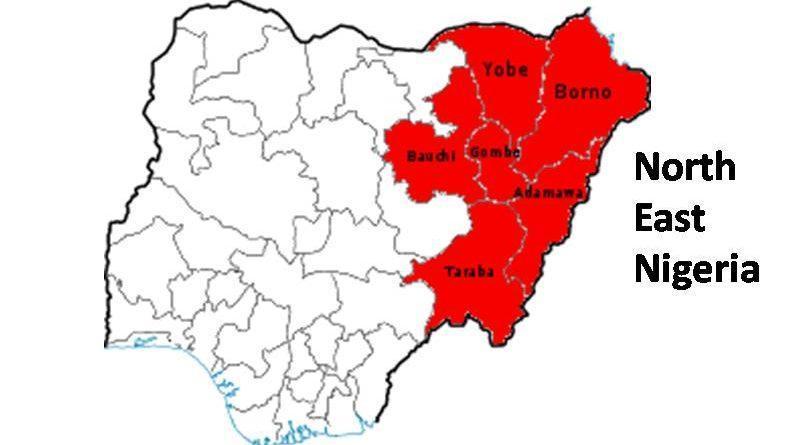A mammoth 4.8 million people in Borno, Adamawa, and Yobe are facing severe food and nutrition crisis
During the lean season from May to September, the Government of Nigeria, along with national and international partners, has initiated an appeal for US$306 million to address the worsening food security and nutrition crisis in Borno, Adamawa, and Yobe (BAY) states. Approximately 4.8 million individuals in these states are currently experiencing severe food insecurity, the highest levels recorded in seven years.
Vulnerable groups such as children, pregnant and lactating women, older persons, and individuals with disabilities are particularly at risk. The appeal aims to provide food assistance, nutrition supplies, clean water, healthcare, and protection services to 2.8 million of the most affected individuals. The crisis, exacerbated by escalating food prices, is primarily attributed to ongoing conflict, insecurity, and climate change impacts in the region.
Urgent and coordinated efforts are crucial to prevent the situation from escalating into a catastrophe. The significant rise in staple food prices, such as beans and maize, coupled with inflation surpassing families’ coping capacities, has rendered essential food items unaffordable for many households. Malnutrition rates are alarming, with an estimated 700,000 children under five projected to suffer from acute malnutrition in the next six months, including 230,000 at risk of severe acute malnutrition and potential death without timely intervention and nutritional support.
During the plan’s launch, Zubaida Umar, the Director General of the National Emergency Management Agency, emphasized the importance of mobilizing funding and resources to address the food security and nutrition crisis in the north-eastern part of the country. This initiative is a crucial step in complementing the Federal Government’s efforts to prevent deaths caused by malnutrition-related complications, negative coping mechanisms, and other health issues.
In a significant development, Mohamed Malick Fall, the United Nations Resident and Humanitarian Coordinator, announced the allocation of $11 million from the Nigeria Humanitarian Fund to kickstart the emergency response. He expressed confidence in our collective capacity to meet the growing needs and emphasized the importance of pooling resources to save lives and alleviate suffering.
Expressing deep concern, Dr Rownak Khan, the Acting Representative of UNICEF Nigeria, highlighted the escalating food security and nutrition crisis in the BAY states. The alarming increase in severe acute malnutrition among children necessitates immediate action. Despite admitting around 120,000 children for treatment of severe acute malnutrition with complications this year, surpassing the estimated target of 90,000, we must ensure that life-saving nutrition commodities reach every vulnerable child. Dr Khan emphasized that this is not just a call to action, but a race against time to save lives and secure the future of millions of children in need.
The Food and Agriculture Organization (FAO) Representative ad interim in Nigeria, Dominique Koffy Kouacou, emphasized the importance of immediate actions for long-term results. Urgent interventions are necessary to address the short-, medium-, and long-term needs of vulnerable populations. Building resilience through emergency agriculture, such as seeds, fertilizer, livestock, technical training, and developing agribusiness, is crucial for improving production and nutrition.
The World Food Programme (WFP) Country Director, David Stevenson, stressed the need to transition from conflict to solutions, with peace and production being the key solution. Despite the ongoing conflict in the north-east, urgent collective assistance is required. Prioritizing access to nutritious foods through cash-based transfers, specialized nutritious foods, and supporting local food solutions is essential.
Efforts to enhance access to drinking water, sanitation facilities, and hygiene are crucial during the lean season and rainy season. This is especially important to prevent the spread of infectious diseases among the more than 2 million internally displaced persons in camps and overcrowded settlements in the BAY states. Breaking the cycle of disease and malnutrition is vital to protect the lives of young children and other vulnerable individuals.
This marks the fourth occasion in which the UN and humanitarian collaborators have initiated an operational strategy for the BAY states, emphasizing the importance of tackling the underlying factors contributing to hunger and malnutrition. This encompasses various initiatives such as promoting peace-building endeavors, enhancing the availability of crucial healthcare services, bolstering food production mechanisms, strengthening social protection services, and alleviating the impacts of climate change shocks.
The plan for addressing food security and nutrition crisis during the lean season is included in the 2024 UN-coordinated Humanitarian Response Plan for Nigeria.




